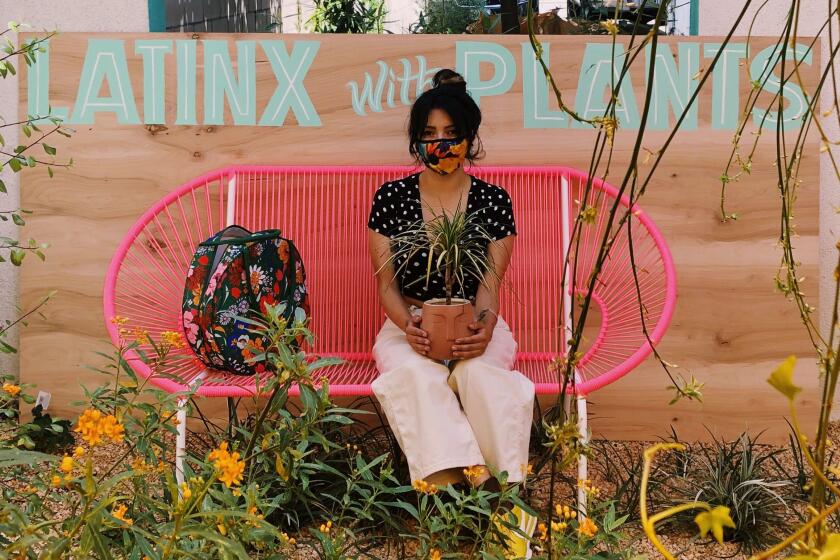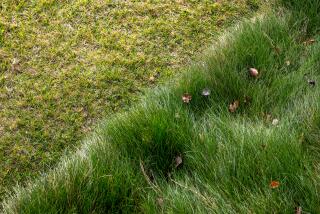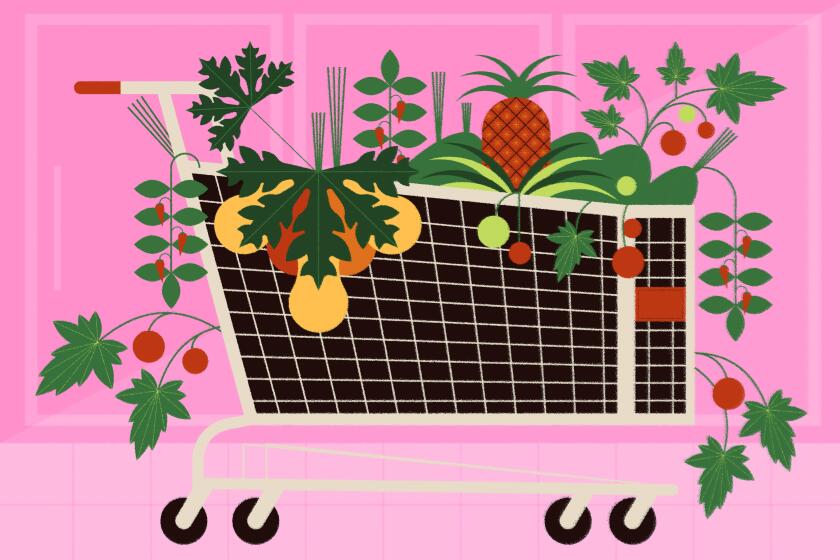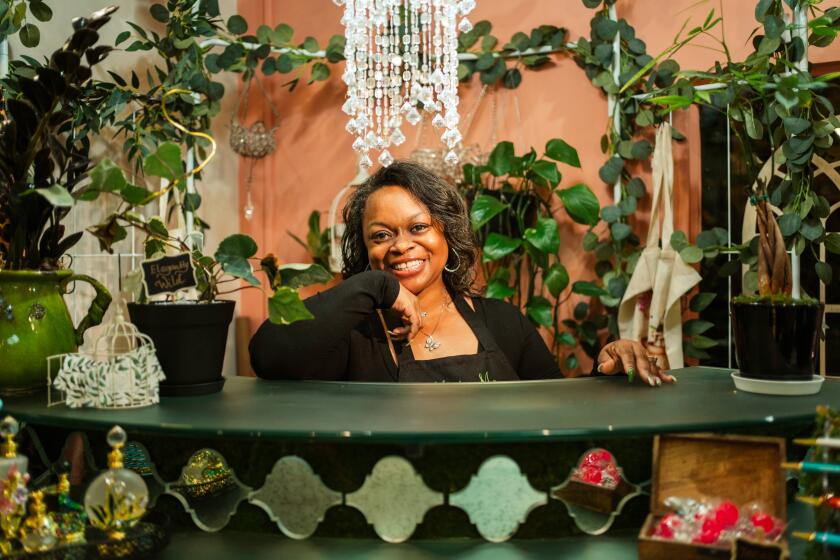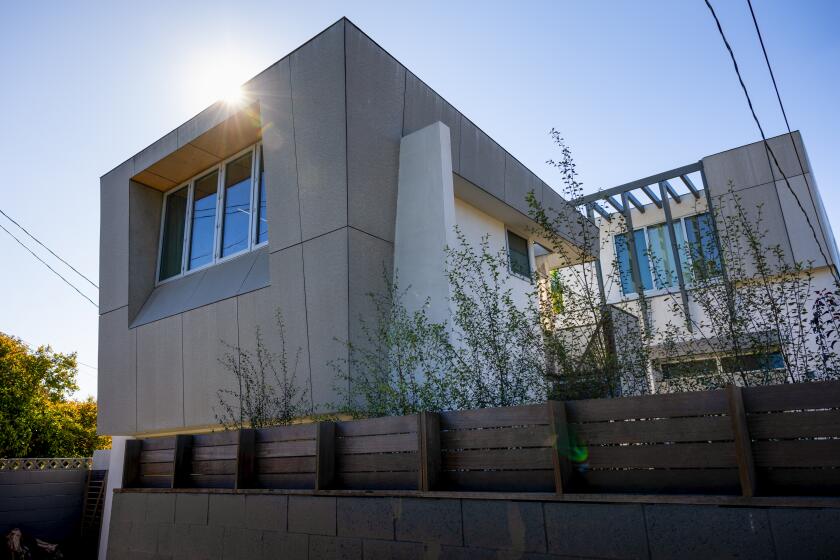10 sun-loving houseplants that can take the heat

Sunlight is prized in Southern California, where many homes and apartments have floor-to-ceiling windows and French doors that allow us to enjoy indoor-outdoor living.
But that sunlight can be brutal on tropical houseplants accustomed to shady tree canopies. (A Mona Lisa lipstick plant may do well in bright light, but its leaves will burn in direct sun.)
In the hottest months it may be necessary to move some houseplants out of the sun. With that in mind, here are 10 that can take the heat:
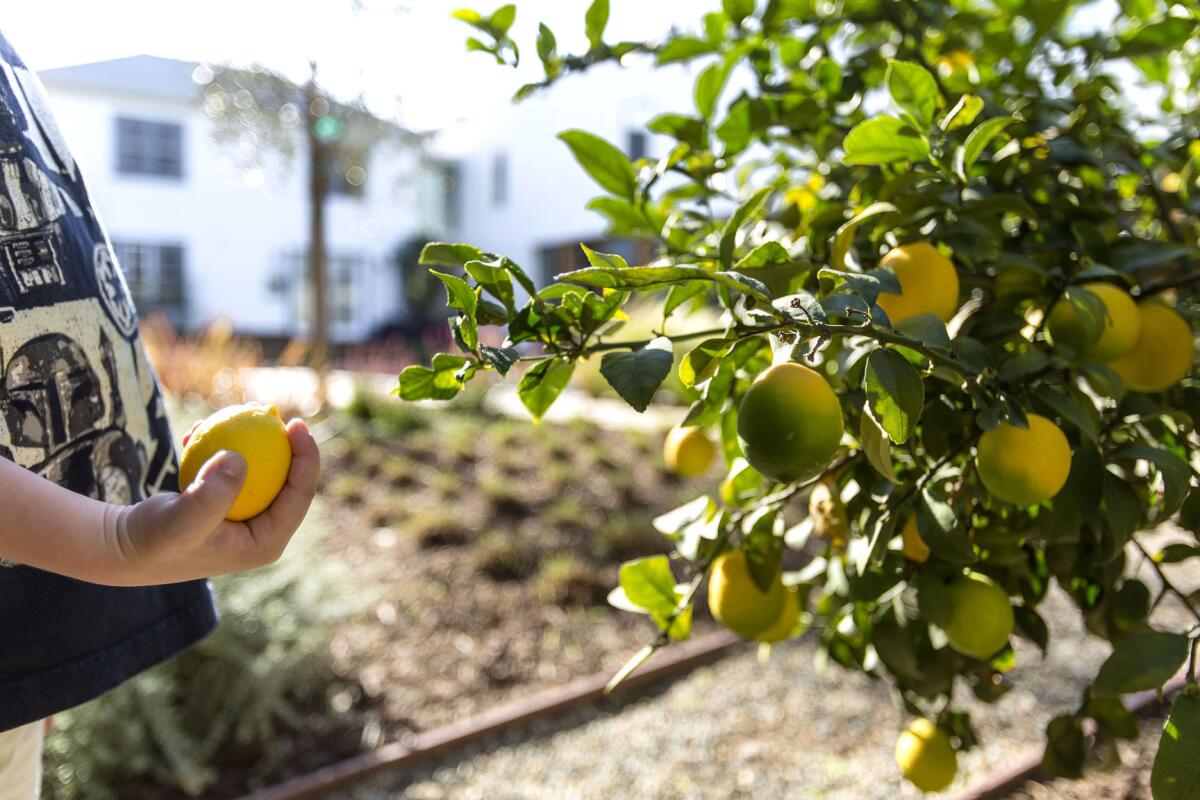
1. Dwarf citrus
Characterized by glossy green leaves, white flowers and brightly colored fruit, a dwarf citrus tree — lemon, lime or orange — makes an uplifting houseplant. It will require at least four hours of direct sunlight a day and under the right conditions will flower regularly. Place containers on a pebble tray and mist them occasionally to assist with flowering and pest control. If the humidity in the room is too low, spider mites can become a problem.
2. Succulents
While most succulents don’t like being inside due to their airflow needs, some will rally in a sunny spot. Annette Gutierrez of Potted recommends kalanchoes, euphorbias, gasteria and aloes. “Oddly, except for kalanchoes and euphorbias, these would all burn if they were in full sun outside,” Gutierrez said. Agave geminiflora; Crassula argentea, or jade plant; and Euphorbia obesa, or baseball plant, can also withstand full sun and will do well in rooms with south-facing windows.
3. Beaucarnea recurvata, or ponytail palm
The ponytail palm is not a palm at all but, like a palm, it can take direct sunlight whether planted indoors or outside. With its curly ponytail, the succulent is a striking choice for interiors and is a good choice for amateurs: It is nearly impossible to kill as long as you don’t overwater it.
4. Cactus
Desert cactus will do well in containers indoors as long as you place them in your sunniest window. Some good choices for indoors: Opuntia subulata, Cereus peruvianus, Cereus jamacaru, Aporocactus flagelliformis, Notocatus concinnus and Notocactus ottonis. Try planting several small cactus in a bowl to create a fun decorative planter. And remember to turn plants regularly as they will be affected by one-sided sun exposure.
5. Herbs
Like succulents, herbs don’t particularly like being indoors but will do fine in a south-facing sunny window. Try basil, rosemary and cilantro.
Andi Xoch, creator of @LatinxWithPlants hosts plant pop-ups on the weekends outside her home in Boyle Heights
6. Olive trees
The silver-leafed fruitless olive is gorgeous inside, which is why you see so many faux olive trees at home stores lately. It needs a lot of sun to survive, but is not a forever indoor houseplant. It will eventually need to be planted in the ground outside.
7. Sansevieria trifasciata, snake plant
Popular sansevierias require little water and thrive in bright light. “People think they are low-light plants, but I’ve seen them do fine in full sun too,” Gutierrez said. “You just have to acclimate them. Many plants will adapt to full sun if you give them time.” If you are going to try this, do it in fall or winter, when the sun isn’t as intense and they have time to acclimate before summer.
8. Strelitzia nicolai, white bird of paradise
This tall tree-like plant can grow up to 6 feet indoors (and much higher outside). Its large oblong textural leaves are lush and will give interiors a tropical vibe. Thanks to its height, and expansive leaves, this is an ideal plant to liven up empty spaces.
9. Yucca elephantipes, spineless yucca
Commonly called spineless yucca, this tall succulent can grow up to 10 feet tall and features clusters of sword-like leaves that shoot out from its woody trunk. Yucca plants are susceptible to root rot, so plant them in well-drained soil and add rocks to the bottom of the container.
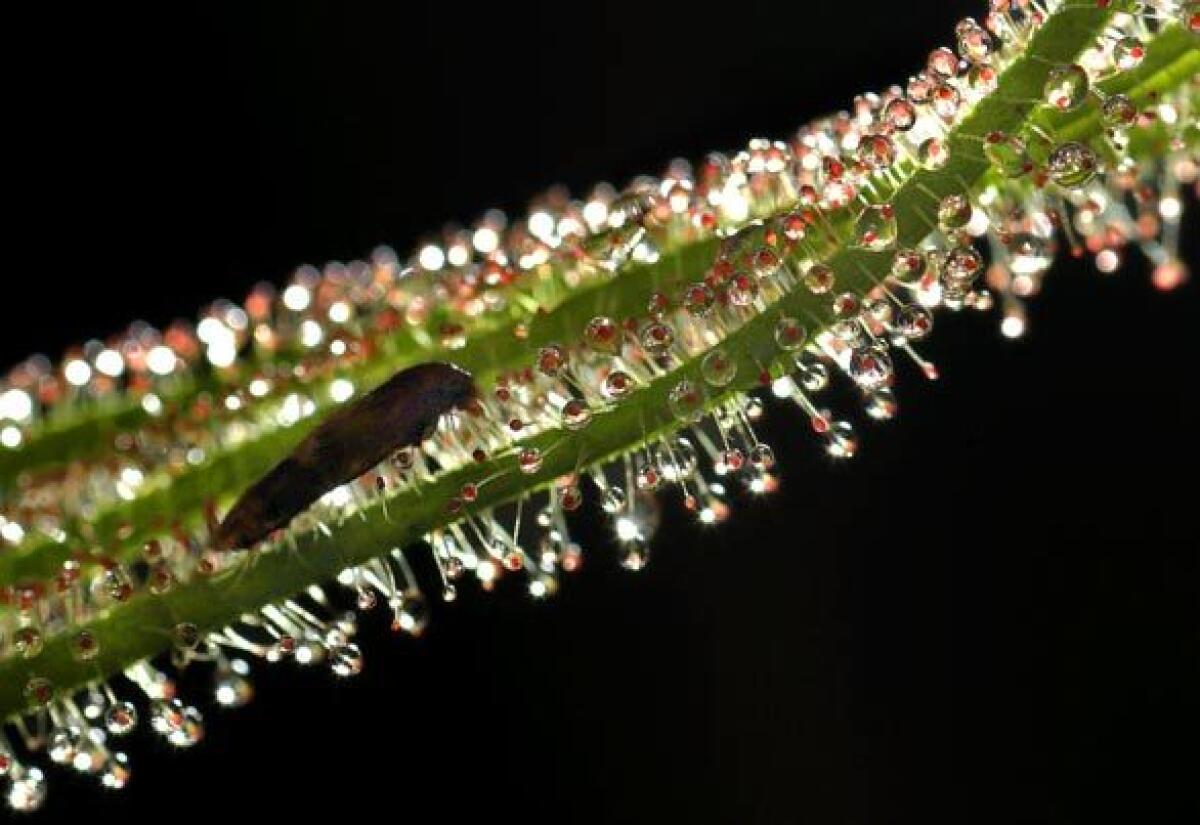
10. Drosera
If you are a fan of carnivorous plants, sundews do well in full sun as long as they’re kept in a marsh-like setup (they are commonly found in bogs, so place them on a pebble tray). Sundew plants often have rosettes and feature sticky pads that trap insects and digest them. Keep the soil moist and it will spread like a weed.
Thirsty? Lack of light? Need to get rid of gnats? Here are the answers to the most frequently asked questions about houseplants.
More to Read
Sign up for our L.A. Times Plants newsletter
At the start of each month, get a roundup of upcoming plant-related activities and events in Southern California, along with links to tips and articles you may have missed.
You may occasionally receive promotional content from the Los Angeles Times.
